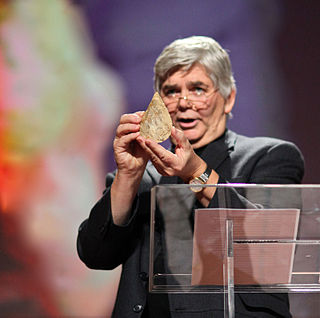A Quote by Milan Kundera
Before we are forgotten, we will be turned into kitsch. Kitsch is the stopover between being and oblivion.
Related Quotes
The maker of kitsch does not create inferior art, he is not an incompetent or a bungler, he cannot be evaluated by aesthetic standards; rather, he is ethically depraved, a criminal willing radical evil. And since it is radical evil that is manifest here, evil per se, forming the absolute negative pole of every value-system, kitsch will always be evil, not just kitsch in art, but kitsch in every value-system that is not an imitation system.
Kitsch is the daily art of our time, as the vase or the hymn was for earlier generations. For the sensibility it has that arbitrariness and importance which works take on when they are no longer noticeable elements of the environment. In America kitsch is Nature. The Rocky Mountains have resembled fake art for a century.
Whether it is a garden gnome, the sound of Bing Crosby launching into 'White Christmas', the blinking innocent eyes of Bambi or the words of Patience Strong, the kitsch phenomenon is there as strong and recognisable as your mother's face. You seldom if ever have the question, whether this is kitsch or not. If you think it might be, then it is.
Kitschis one of the major categories of the modern object. Knick-knacks, rustic odds-and-ends, souvenirs, lampshades, and African masks: the kitsch-object is collectively this whole plethora of "trashy," sham or faked objects, this whole museum of junk which proliferates everywhere.... Kitsch is the equivalent to the "cliché" in discourse.
High-class kitsch may well be "perfect" in its form and and composition: the academic painters were often masters of their craft. Thus, the accusation that a work of kitsch is based not on lack of for or aesthetic merit but on the presence of a particularly provocative emotional content. (The best art, by contrast, eschews emotional content altogether.)
While a forgery illegally exploits the elitist taste for rarity, a kitsch object insists on its anti elitist availability. The deceptive character of kitsch does not lie in whatever it may have in common with actual forgery but in its claim to supply its consumers with essentially the same kinds and qualities of beauty as those embodied in unique or rare and inaccessible originals.
































